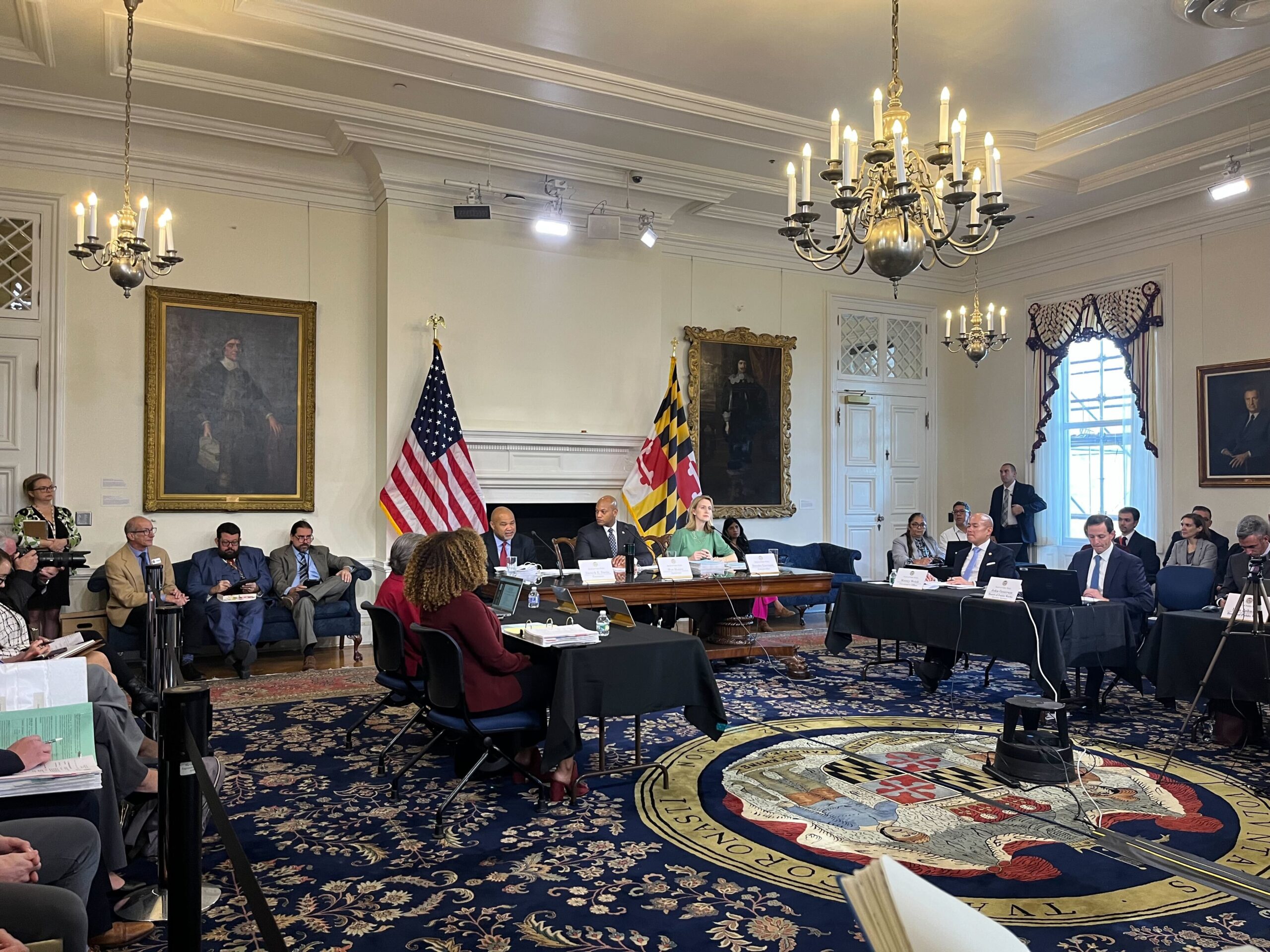ANNAPOLIS, Md. – The Board of Public Works approved a plan from the Maryland Department of Health Wednesday to establish 144 regular positions, eliminating 180 contract positions, but the OK came with a scolding for the previous administration’s failure to document more than $1 billion in federal funding, jeopardizing reimbursement.
There will be no additional cost to the state for the new positions, the department said. The Board of Public Works, which consists of Gov. Wes Moore, Comptroller Brooke Lierman and Treasurer Dereck Davis, can create over 100 regular positions if 1.25 full-time equivalent contractual positions are abolished for each new position created.
“Since day one it has been an urgent priority for my administration to rebuild state government and to fill thousands of vacancies that exist within our state agencies,” Moore said. “The reason they have been a core priority is because these vacancies continue to compromise our ability to give the level of service that people of our state need and the people of our state deserve.”
The COVID-19 pandemic emphasized the need for a stable public health workforce to support the health and safety of Marylanders, the department told the board. By converting contractual employees to permanent positions, the department aims to provide more stability for the state’s public health workforce.
“A strong workforce is going to be vital for all Marylanders to have a world class, equitable health care system,” Moore said. “And by converting these contractual employees to permanent state merit positions, we are improving stability that is not offered by contractual employment.”
Maryland Secretary of Health Laura Herrera Scott said the new positions will support a variety of health care services.
“It is one of the few state agencies … that truly serves Marylanders across the lifespan,” Herrera Scott said. “And these 144 positions support a variety of core health functions.”
Regular positions created will help Marylanders maintain Medicaid coverage; help determine Medicaid eligibility and enrollment; help with certification of Maryland recovery residences for those with behavioral health conditions; ensure developmentally disabled individuals and families receive adequate care, help issue birth and death certificates and assist with oversight of health care facilities, among other duties.
“It really creates efficiencies in our government and in the administration of our services that we’re doing when we have the staff that we need to do it and we don’t have to contract out,” Lierman said. “And people can work side by side with their peers and know that they have the same benefits (and) they have earned the same pay.”
The decision comes after an Office of Legislative Audits report revealed that the Department of Health was unable to provide documentation for $1.4 billion in spending between Feb. 12, 2019, and June 30, 2022. The lack of proper documentation means the department could miss out on federal aid, further burdening the state’s $63 billion budget for 2024. The total was originally $3.5 billion, but the Department of Health was able to recover $2.1 billion as of April 2023.
The audit raises concerns, Moore said, about how previous administrations and previous health secretaries handled the department’s budget.
“We continue to get through news media and through audits repeated reminders of a level of brokenness that existed within state government,” Moore said. “Fiscal responsibility cannot simply be a buzzword. Fiscal responsibility cannot be something that simply sounds good, it has to be a core part of what we do in state government.”

